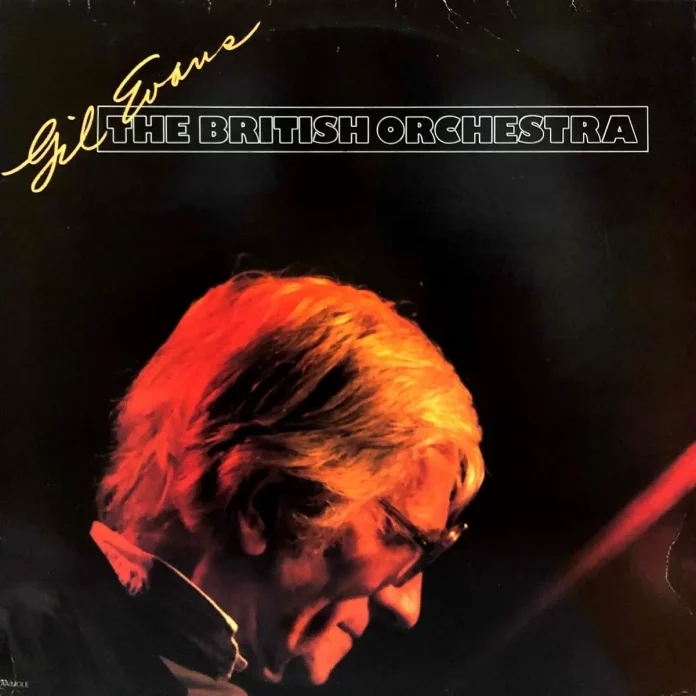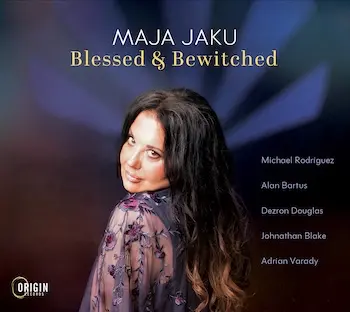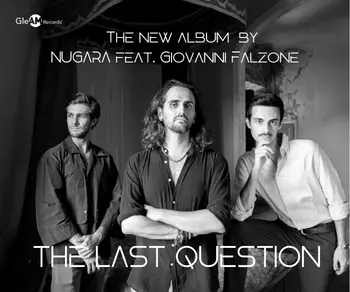Congratulations to Mole Jazz, and thanks to their Arts Council sponsors, for the speedy release of this album only 6 weeks after recording.
Its importance is not just that it adds to the very limited output of Gil Evans, but that it enables us to assess the success, or otherwise, of a very brave experiment – to pair Gil Evans with a group of British musicians, only one of whom, Don Weller, he had ever worked with before.
The 4 pieces recorded for the album bear all the hallmarks of Evans’ music – strong melodies; a good backing riff; a lack of a definite start and finish to each piece; excellent part work scoring; short, ensemble interjections into the solos; a reliance on good soloists to act as catalysts to the rest of the band; and above all a rich, fluid, powerful but at times precarious overall sound that can be tender as it can be tough.
What is missing from these tracks though is the space so evident on previous Evans’ recordings, for these pieces are all densely scored for ensemble continuo behind each solo as well as for theme work. This presents a considerable challenge to each soloist, not all of whom measure up to the task. The opening solo by Stan Sulzmann on Miles Davis’ Hotel Me is timid, failing to develop much beyond the theme, but his almost disembodied soprano sax solo on Monk’s Friday The 13th is excellent, and demonstrates Evans’ use of contrasting soloists, Sulzmann following on from a rousing, full-bodied trombone solo by Malcolm Griffiths.
One soloist who rises to the challenge is Chris Hunter, whose alto solo on the Evans composition London (specially composed for the Camden festival) shows off his considerable abilities to the full. Hunter subverts the initially placid mood of the piece into something altogether more powerful. John Surman brings to his solos a rare beauty and control, at times almost chilling in its intensity, particularly on London. Behind these soloists are an excellent band, particularly John Marshall the drummer, not credited on the sleeve, who provides a solid platform for the band to work on.
The only disappointment is the last piece, the Jimi Hendrix composition Little Wing. Ever since Clapton and Allman immortalized the piece on the Layla album, Little Wing has been identified as a guitarist’s show piece. Evans chooses not to break with this tradition, and as a result Ray Russell is left to struggle to put his own identity onto the piece. He succeeds, just, but a more adventurous approach by Evans might have been worthwhile.
There is much more to be said about this fine album, but above all it ought to be listened to by those American musicians who usually regard Britain as a peripheral nation of jazz listeners. On the strength of this outing, it is the Americans who should be doing the listening.
Discography
Hotel Me; Friday The 13th (24.00) – London; Little Wing (22.45)
Gil Evans (arr/elp/p); Guy Barker, Miles Evans, Henry Lowther (t); Malcolm Griffiths (tb); Rick Taylor (tb/btb); Chris Hunter (as/sps/f); Stan Sulzmann (ts/sps/f); John Surman (bs/sps/bcl/syn); Don Weller (ts/sps); Moe Foster (elb); Ray Russell (elg); John Taylor (ky); John Marshall (d). St. George’s Hall, Bradford, recorded live, 18/3/83.
(Mole 8)




